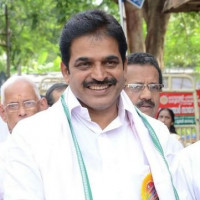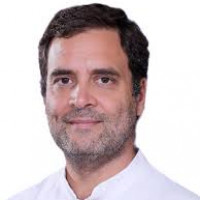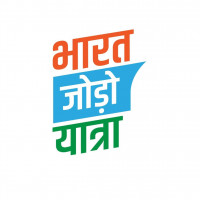
Rahul Gandhi’s resignation leaves Congress in leadership vacuum
On Wednesday, a day before Rahul Gandhi indicated that there was no going back on his decision to resign as Congress president, a letter from the All India Congress Committee (AICC) landed in the inboxes of all party functionaries and journalists.
The letter was signed by KC Venugopal, general secretary (organisation), and announced a routine appointment, but it signalled something was amiss. The appointment had been made not by the Congress president, as has been the convention in the 134-year-old party; it was made by the AICC.
“He is refusing to sign any letters,’’ said a key team member, explaining the change, declining to be named.
And that sums up the crisis that the party confronts a month after the April-May general election, in which it won 52 seats, up from 44 in 2014, but still not enough to make it eligible for even the status of Leader of the Opposition in the 543-member Lok Sabha.
Since May 25, when Gandhi offered to resign at a Congress working committee (CWC) meeting , he has gone into a shell. Even members of his core team, K Raju, Alankar Sawai and Kaushal Vidyarthee, who would sit at his Tughlaq Lane office, have had almost no interaction with Gandhi, who turned 49 on June 19.
“I am disturbed about the inaction in the party; by now it should have begun to reorganise itself,’’ said political scientist Neera Chandioke. “The problem is that there is no defined second-rung leadership in the Congress, so Rahul’s stepping down has caused a vacuum.’’
For a party plagued by factionalism from the Centre to the states, it’s not easy to zero in on a replacement who has the ability and credibility to act as the glue that holds it together. His mother and predecessor Sonia Gandhi, 72, from whom he inherited the mantle of Congress president in December 2017, is attending Parliament, but refuses to address the leadership issue.
“She is being a pillar of strength by sitting there with us in Parliament,’’ said one Congress MP. “The problem is that Rahul Gandhi was never given a free hand to do what he wanted to do with the party. He had to work with the old guard who were part of his mother’s team and that stopped a brand new Congress from emerging. Indira’s success came out of Congress splitting, Rajiv also had a split and so did Sonia Gandhi. Rahul Gandhi needs a split (in the party) for his ideas to work.’’ The references were to late prime ministers Indira Gandhi and Rajiv Gandhi, Rahul Gandhi’s grandmother and father. While this MP, who is a member of the young guard in the Congress, defends Rahul Gandhi against attempts to pin the blame for the party’s dismal performance on the Gandhi family scion, some note that as party president, he had failed to curb rampant factionalism.
The letter was signed by KC Venugopal, general secretary (organisation), and announced a routine appointment, but it signalled something was amiss. The appointment had been made not by the Congress president, as has been the convention in the 134-year-old party; it was made by the AICC.
“He is refusing to sign any letters,’’ said a key team member, explaining the change, declining to be named.
And that sums up the crisis that the party confronts a month after the April-May general election, in which it won 52 seats, up from 44 in 2014, but still not enough to make it eligible for even the status of Leader of the Opposition in the 543-member Lok Sabha.
Since May 25, when Gandhi offered to resign at a Congress working committee (CWC) meeting , he has gone into a shell. Even members of his core team, K Raju, Alankar Sawai and Kaushal Vidyarthee, who would sit at his Tughlaq Lane office, have had almost no interaction with Gandhi, who turned 49 on June 19.
“I am disturbed about the inaction in the party; by now it should have begun to reorganise itself,’’ said political scientist Neera Chandioke. “The problem is that there is no defined second-rung leadership in the Congress, so Rahul’s stepping down has caused a vacuum.’’
For a party plagued by factionalism from the Centre to the states, it’s not easy to zero in on a replacement who has the ability and credibility to act as the glue that holds it together. His mother and predecessor Sonia Gandhi, 72, from whom he inherited the mantle of Congress president in December 2017, is attending Parliament, but refuses to address the leadership issue.
“She is being a pillar of strength by sitting there with us in Parliament,’’ said one Congress MP. “The problem is that Rahul Gandhi was never given a free hand to do what he wanted to do with the party. He had to work with the old guard who were part of his mother’s team and that stopped a brand new Congress from emerging. Indira’s success came out of Congress splitting, Rajiv also had a split and so did Sonia Gandhi. Rahul Gandhi needs a split (in the party) for his ideas to work.’’ The references were to late prime ministers Indira Gandhi and Rajiv Gandhi, Rahul Gandhi’s grandmother and father. While this MP, who is a member of the young guard in the Congress, defends Rahul Gandhi against attempts to pin the blame for the party’s dismal performance on the Gandhi family scion, some note that as party president, he had failed to curb rampant factionalism.





